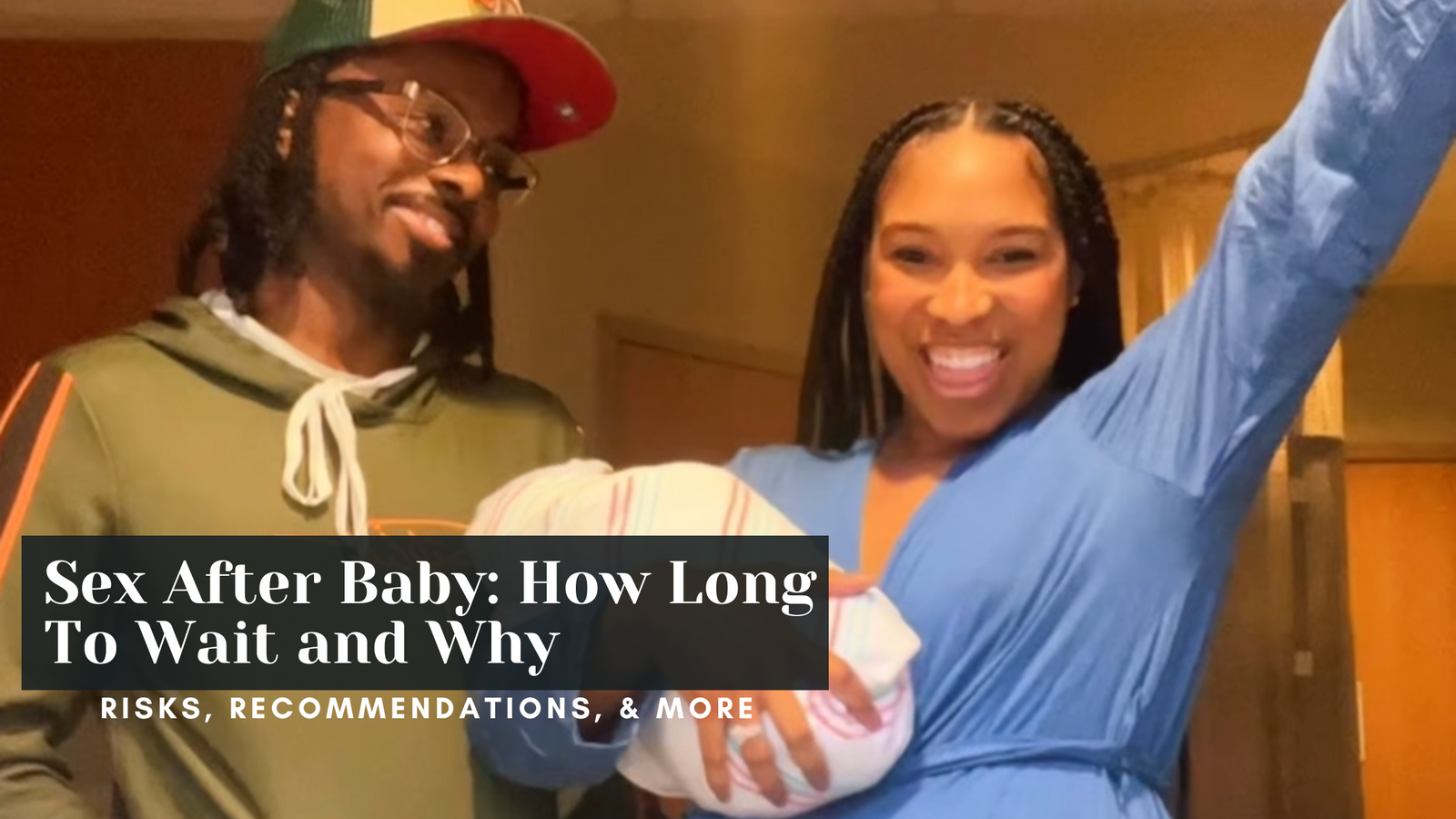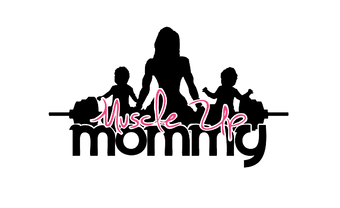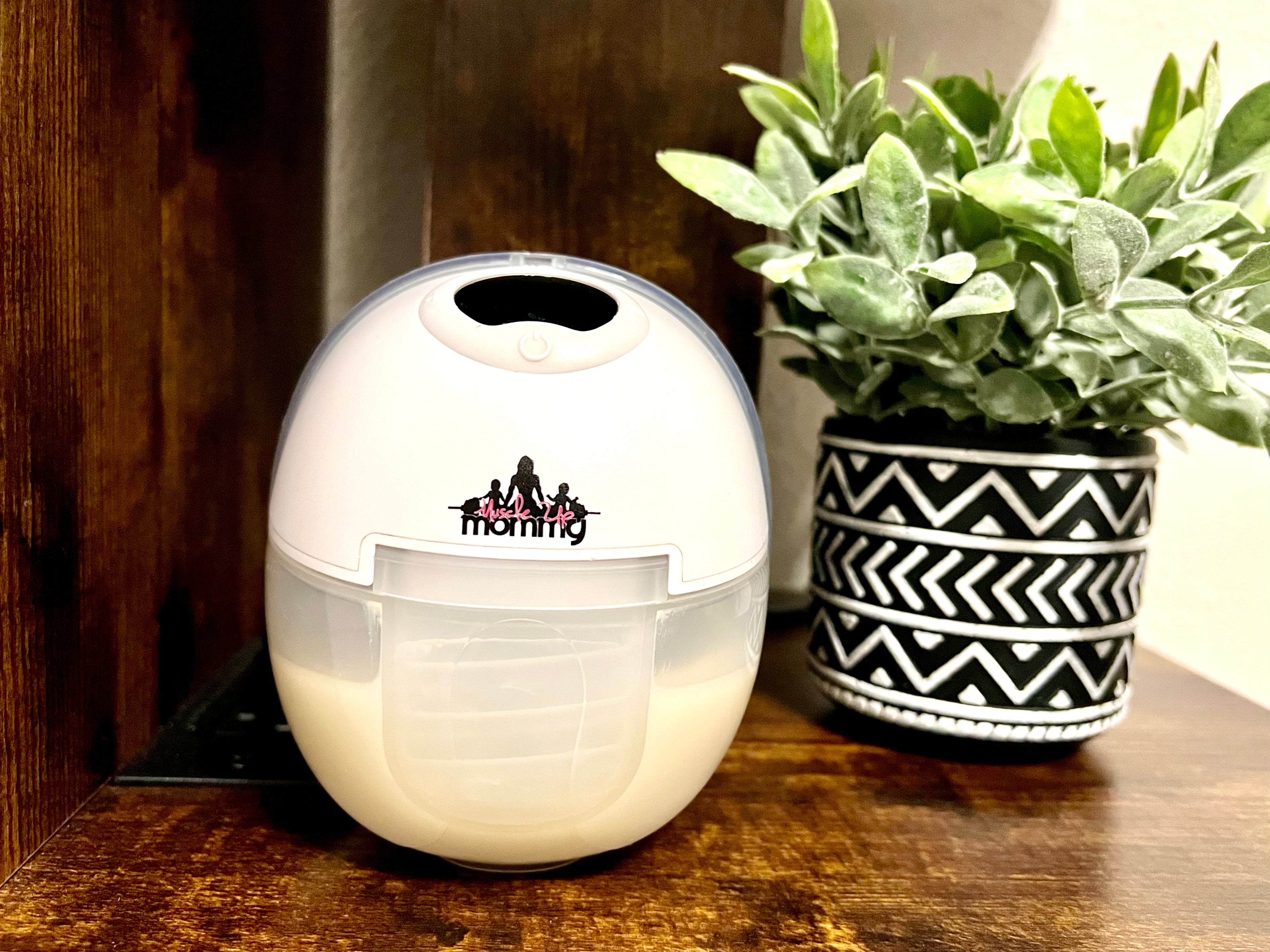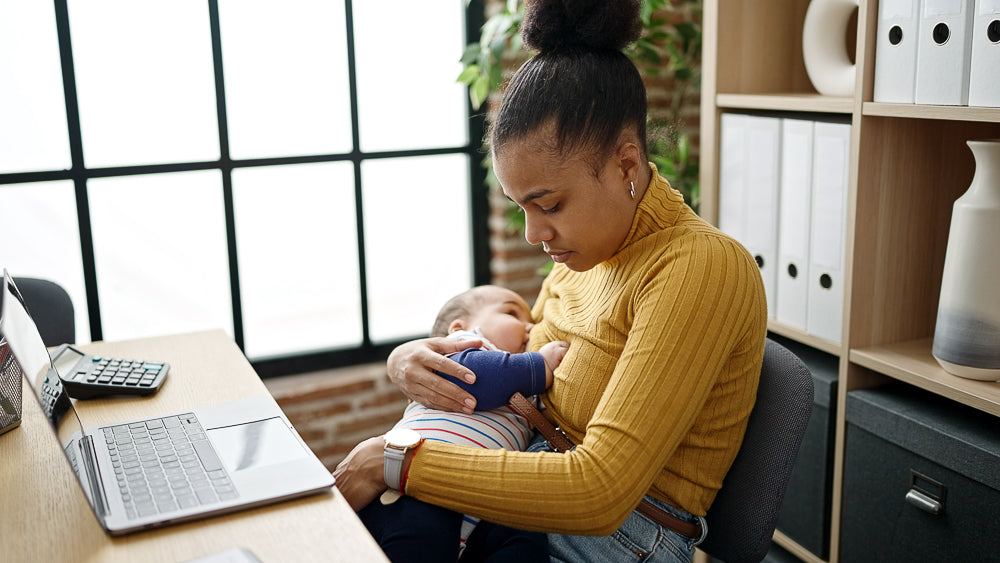Sex After Child Birth: How Long to Wait and Why?

As your body heals from childbirth, the topic of sex may come up. Before you head back to the bedroom, here's some important information you should know to protect yourself.

In this article:
How long should you wait to have sex after child birth?
Is this a safe space? Let's call a spade a spade. Third trimester sex can be uncomfortable and begin to dwindle down for a number of different reasons:
- frequent urination
- hormone changes
- body dysmorphia thoughts start to creep in
- feeling baby move around while in the moment
- few comfortable positions
and the list could go on.
No matter what your reason is for the dip in sex during your third trimester, it seems like those feelings come rushing back two to three weeks after giving birth.
Though there's no definitive set time, there's a reason why doctors recommend waiting to have sex until four to six weeks following child birth (via vaginal delivery.)
What happens to your libido during pregnancy?
1. First Trimester: Decrease in Libido
- Hormonal Shifts : The surge in hormones, particularly progesterone and estrogen , can cause fatigue, nausea, and mood swings, which may lower libido.
- Morning Sickness and Fatigue : Many women experience nausea, vomiting, and extreme tiredness in the first trimester, which can reduce interest in sex.
- Emotional Adjustments : The emotional adjustments to pregnancy, including worries about the baby, future, or body changes, can also contribute to a lowered sex drive.
2. Second Trimester: Increase in Libido
- Hormonal Balance : Hormones tend to stabilize in the second trimester, often resulting in more energy and less nausea. This may lead to an increase in libido.
- Increased Blood Flow : Blood flow to the pelvic area increases during pregnancy, which can heighten sensitivity and sexual desire.
- Feeling More Comfortable : By the second trimester, many women have adjusted to the idea of pregnancy and may feel more comfortable with their changing bodies, leading to an increase in sexual interest.
3. Third Trimester: Decrease in Libido
- Physical Discomfort : As the body becomes larger and heavier, physical discomforts like back pain, fatigue, and difficulty finding comfortable positions can reduce libido.
- Concerns About Baby : Worry about harming the baby or discomfort during intercourse may cause a decline in sexual desire. Though sex is generally safe in a healthy pregnancy, some women may feel more protective of their body and baby.
- Emotional Factors : Anxiety about childbirth, preparing for the baby, and emotional stress may also decrease interest in sex.
Overall factors affecting libido
During postpartum, your body is actively working to regulate hormones, shrink the uterus back into its natural size and positioning, contract the cervix back into it's closed state, and regulate your libido after birth.
- Hormones like oxytocin (the "love hormone") and prolactin (which helps with milk production) play significant roles in libido changes. Oxytocin may increase sexual desire, while prolactin can reduce it, especially toward the end of pregnancy.
- Body Image : Some women feel more confident and sexy with their pregnancy bodies, while others may struggle with the changes, impacting libido.
- Partner Connection : Emotional intimacy and communication with a partner can influence sexual desire. Feeling connected may boost libido, while stress or relationship issues may decrease it.
Every woman’s experience is different, and some may experience consistent libido changes throughout pregnancy, while others may notice more significant fluctuations. It's important to communicate openly with your partner about these changes and to adjust expectations as needed.
This is also important as you navigate libido changes after having your baby, especially if you decide to breastfeed.
Can Breastfeeding impact your libido?
Breastfeeding has been known to have a significant effect on libido due to the following factors:
1. Hormonal Influence:
Prolactin : Breastfeeding stimulates the production of prolactin , a hormone that promotes milk production but also tends to suppress libido. Higher levels of prolactin can reduce sexual desire.
- Estrogen Levels : Breastfeeding lowers estrogen levels, which can cause vaginal dryness, making sex uncomfortable or less appealing. This drop in estrogen can also decrease libido because it plays a key role in sexual arousal and lubrication.
2. Physical and Emotional Fatigue : Taking care of a newborn and the demands of breastfeeding can lead to exhaustion, which may leave little energy or interest for sex. The physical demands of nursing, coupled with lack of sleep, can impact a new mom’s desire for intimacy.
3. Oxytocin Release : On the positive side, breastfeeding releases oxytocin , the "love hormone," which can boost emotional connection and closeness with your partner. However, this doesn't always translate to increased sexual desire, especially if other factors like fatigue or hormonal imbalance are at play.
For these reasons, more moms choose to exclusively pump breast milk, known as exclusively pumping to aid in suppressing hormones and prolonging their period from returning, which can also impact your libido.
Balancing postpartum while breastfeeding
Muscle Up Mommy J35 Wearable Breast Pumps simplify the way moms navigate balancing work, life and motherhood.
They are most loved for their:
- hands-free design
- quiet and discreet operation
- customizable suction for gentle, yet effective experience
- portable and compact size making it travel-friendly
- Rechargeable Battery allowing for all day use on a single charge.
The convenience and ease make it that much more practical to pump more frequently, balance motherhood and navigate life after child birth.
Breastfeeding can act as a natural form of birth control, however if you're looking to avoid getting, It's recommended that you look into alternative and more reliable methods of birth control, especially if your menstrual cycle hasn't started back.
What are the risks of having sex too soon?
Depending on the type of delivery you had, vaginal or by caesarean, your vaginal tissue can be thinner and more sensitive than before child birth.
Some common issues women face after child birth are:
- Vaginal dryness
- Thin vaginal tissue
- Bleeding
- Pain
- Discomfort
- Fatigue
- Low Libido
- Loss of elasticity in vaginal muscles
- Tearing or postpartum hemorrhaging
Returning to sex too soon before your body properly heals could result in complications like hemorrhaging, infection, vaginal sensitivity, and more.
Whether you're recovering from vaginal delivery or abdominal surgery (a caesarean), giving your body time to recover fully before diving back into the natural swing of sex can be very beneficial.
Why wait?
You don't want to risk vaginal irritation, infection or tearing from childbirth stitches, as this can prolong your recovery process.
You should consider, this is a period where you're adjusting to new life, new schedules, sleep deprivation (lack of sleep), and new daily routines. Aside from vaginal risks, having sex too soon can also increase your chances for another pregnancy.
Pregnancy after birth
You, you can get pregnant immediately after child birth if you aren't careful.
Your body is still very vulnerable and delicate during the first six to eight weeks after birth. In fact, you have a greater chance of getting pregnant when you resume sex too soon.
Back-to-back pregnancies, often referred to as "Irish twins" (a term usually used to describe siblings born less than a year apart), occur when a woman conceives shortly after giving birth. This can happen for various reasons, and while it can have its benefits, it also comes with unique challenges.
1. Timing and Fertility
- Return of Fertility : After giving birth, a woman's fertility may return relatively quickly, especially if she is not breastfeeding. Ovulation can resume as early as three weeks postpartum, allowing for the possibility of conception soon after childbirth.
- Breastfeeding Effects : For breastfeeding mothers, especially those exclusively breastfeeding, the hormone prolactin can suppress ovulation, which may delay the return of fertility. However, many women may still ovulate before their periods return, making back-to-back pregnancies possible.
2. Physical and Emotional Considerations
- Physical Demands : Carrying and caring for a newborn while being pregnant again can be physically demanding. Pregnancy can cause fatigue, and adding a young child to the mix can increase exhaustion.
- Recovery Time : The body needs time to recover after childbirth. Back-to-back pregnancies may not allow for sufficient recovery, which could impact physical health, especially if there are complications from the previous pregnancy or delivery.
- Emotional Adjustments : The emotional toll of managing a newborn and pregnancy simultaneously can be significant. Feelings of anxiety, stress, or overwhelm may arise due to the demands of caring for two children under the age of two.
3. Healthcare Considerations
-
Prenatal Care: It’s essential to have regular prenatal care during a back-to-back pregnancy. Healthcare providers may monitor closely for potential risks associated with short intervals between pregnancies, such as:
- Increased Risk of Complications : Short intervals may raise the risk of complications like preterm labor , low birth weight , and uterine rupture (especially if there was a C-section in the previous delivery).
- Nutritional Needs : A pregnant woman requires adequate nutrition to support both her health and the health of her growing fetus. Healthcare providers may recommend dietary adjustments or supplements to meet these needs.
All in all, there's no scientific date on how soon is too soon to begin having sex with your partner after child birth, but healing properly to avoid complications should be a priority.
Postpartum Recovery Must haves
Healing from child birth can feel like a marathon but if you truly get mentally prepared to have AT LEAST 6 weeks of recovery, you'll feel better about the length of time it's taking.
Some excellent recommendations are:










Leave a comment